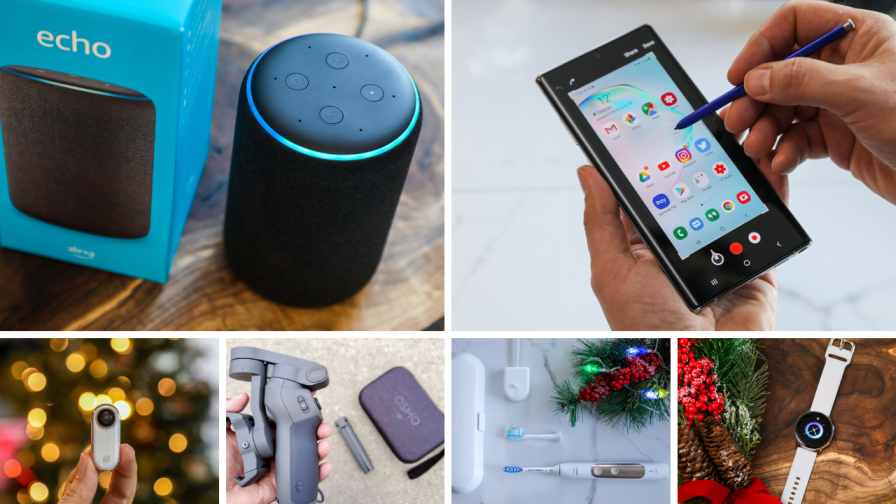Holiday tech spending by the numbers: Americans spent an estimated $135 billion on tech during the 2020 holiday season

In 2019, consumers worldwide spent $1.7 trillion on technology, according to an estimate from IDC The research firm predicted that purchases of traditional and emerging tech will hit $2.06 trillion in 2023. Tech spending slowed this year due to the coronavirus pandemic.
However, as more Americans stay and shop from home due to the coronavirus pandemic, tech spending has gained steam with tech estimates expected to go up 10% in 2020. According to an estimate from the Consumer Technology Association (CTA), tech spending on hardware and services during the 2020 holiday season (October-December) is projected to reach $135 billion in revenue in the U.S. – a 10% increase from last year.
The CTA study also found that about 44% of consumers will shop online with a holiday shopper spending an average of $195 on electronic products. The 27th Annual Consumer Technology Holiday Purchase Patterns study also found 81% of U.S. adults are more likely or just as likely to purchase tech products this holiday season, despite the economic and safety concerns marked by the COVID-19 pandemic.
Top Five Tech Gifts Consumers Most Want to Receive
Smartphones have once again topped consumers’ wish lists for tech gifts. Video game consoles jumped to third (seventh in 2019) in anticipation of next-gen video game consoles including the Xbox Series X and PlayStation 5, releasing this holiday season.
- Smartphones
- Laptops
- Video game consoles
- TVs
- Wearables
“The 2020 holiday season will bring economic, safety, and political unknowns – but the consumer desire to give and receive technology gifts is certain,” said Lesley Rohrbaugh, director of market research, CTA. “With consumers forgoing budgets for travel and experiences this year, more dollars will go towards technology gifts that support connection, productivity, health, and entertainment, as technology has been a critical asset to so many during the ongoing pandemic.”
Smartphone and 5G Outlook
Smartphones will be a popular purchase during the holiday season once again. Forty-five percent of consumers expect to purchase at least one smartphone as a gift, increasing by four percentage points from 2019. Among consumers who want to buy a smartphone, two-thirds (66%) of buyers expect to upgrade to a 5G smartphone. Additionally, mobile phone cases will be popular, with 48% of shoppers planning to purchase one as a gift this season.
Gaming and Entertainment Products and Services Show Gains
Thanks to the socialization and streaming qualities of video games with so many Americans spending more time at home – in addition to next gen device upgrades coming to the market – 38% of U.S. adults (up five percentage points over last year) plan to purchase a video game console as a gift. Additionally, 70% of holiday shoppers plan to purchase at least one content-related gift this season such as gaming, video or audio streaming services.
Interest in STEM Toys Grows as Parents Continue At-Home Education
With so many students attending school virtually, interest in products to supplement home-based learning through other means such as STEM products has grown. Plans to gift kits dedicated to subjects such as engineering, robotics and coding for the holidays have grown year-over-year to 26% of U.S. adults, up five percentage points from last year.
Shopping Habits
Shoppers plan to buy tech gifts via brick-and-mortar stores (85% of U.S. adults) and online (79%) this holiday season. But for two-thirds of shoppers, their ability to socially distance from others will be a key factor in how they plan to shop.
“This season, more consumers will choose to shop with the retailers that provide safe shopping experiences and alternative methods of getting orders to the consumer such as contactless delivery and curbside pickup,” said Rohrbaugh.
CTA Holiday Research
To keep up to date with all of CTA’s holiday and Black Friday research throughout the season, visit CTA.tech/holiday, where the report is available at no cost for CTA members or for purchase.
This quantitative study, designed and formulated by CTA, was administered to an online sample of 2007 U.S. adults between September 10-13, 2020.


